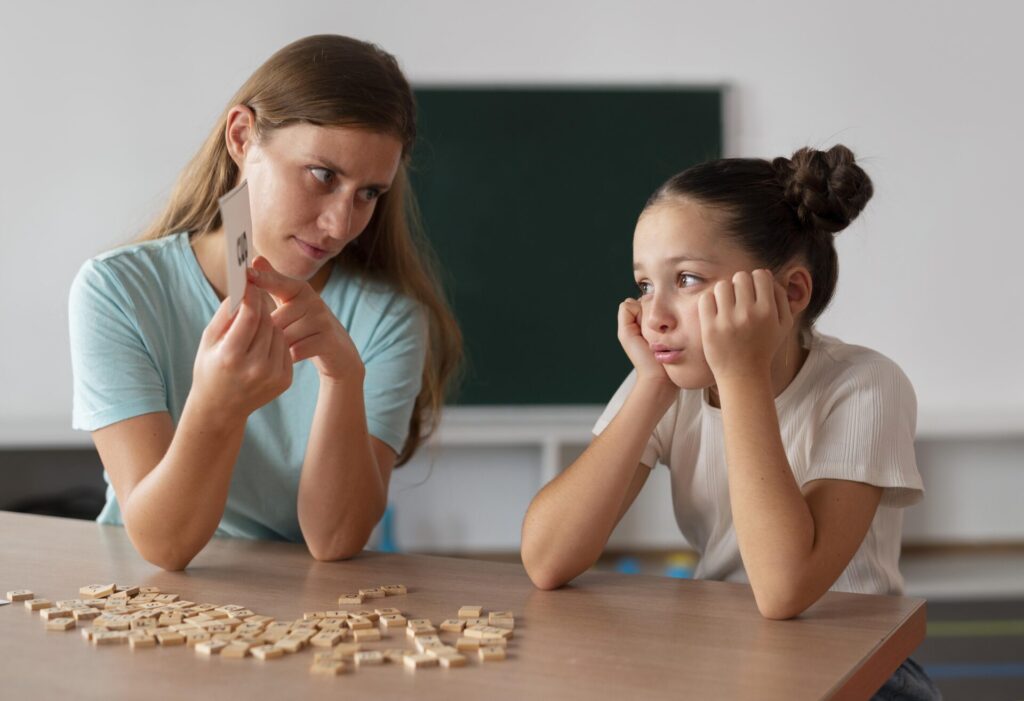If your child has ADHD, you’ve probably seen how school can feel like an uphill battle. Staying focused, following instructions, and keeping up with assignments can be overwhelming—no matter how bright they are. As a parent, it’s natural to wonder: Does tutoring help ADHD learners overcome these struggles?
The answer isn’t just a simple yes or no. Not all tutoring works the same way, and for children with ADHD, the right approach makes all the difference. This guide breaks down how tutoring can support ADHD learners, what to look for in a program, and how different research-backed methods help children thrive.
How ADHD Affects Learning
ADHD isn’t just about being distracted or hyperactive—it affects how a child processes and retains information. Here’s how ADHD can impact learning:
- Difficulty with focus – Staying attentive during long lessons or multi-step tasks can be challenging.
- Working memory struggles – Holding onto information long enough to apply it can be a hurdle.
- Executive functioning delays – Organizing thoughts, following schedules, and managing time often require extra support.
- Frustration with traditional methods – Standard classroom settings may not offer the individualized attention or flexibility needed.
Because of these challenges, some traditional tutoring programs may not be the right fit. Instead, ADHD-friendly tutoring methods that use structure, engagement, and multisensory learning can be much more effective.
Does Tutoring Help ADHD Learners?
Yes—but only if it’s designed for how ADHD brains learn best.
Many children with ADHD struggle in a standard tutoring setup that focuses on repetitive drills or passive learning. However, specialized tutoring can provide:
- One-on-one attention – Lessons tailored to your child’s strengths and needs.
- Interactive, multisensory methods – Hands-on learning instead of just listening or memorizing.
- Breaks and movement-based strategies – Reducing restlessness and increasing focus.
- Skill-building beyond academics – Improving confidence, organization, and problem-solving.
When tutoring matches how ADHD minds process information, it can transform the learning experience and build lasting academic skills.
What Makes Specialized Tutoring Effective?
Multisensory Learning Enhances Retention
Children with ADHD often struggle with passive learning methods, which is why multisensory techniques are so effective. Instead of just listening or reading, they engage multiple senses—seeing, hearing, and doing—to reinforce understanding. This interactive approach makes lessons more engaging and improves retention, helping students grasp concepts more effectively.
Structured, Step-by-Step Instruction Keeps Learners on Track
ADHD learners thrive with clear, predictable instruction that breaks information into manageable steps. Long, unstructured lessons can feel overwhelming, but short, structured activities help maintain focus and build confidence. A consistent, step-by-step approach makes learning feel achievable rather than frustrating.
Personalized Teaching Adapts to Individual Needs
No two children with ADHD learn the same way, which is why customized tutoring is essential. A skilled tutor will adjust their teaching methods to match the student’s strengths, pace, and challenges. Whether a child needs extra time on certain topics, a different way of explaining concepts, or movement-based learning strategies, personalized instruction makes a big difference in engagement and progress.
Building Executive Functioning Skills for Long-Term Success
Beyond academics, children with ADHD often need help with executive functioning skills—the ability to plan, organize, and self-regulate. Effective tutoring incorporates strategies to improve focus, manage time, and develop independent learning skills. These techniques empower students beyond the classroom, helping them feel more in control of their learning journey.
Tutoring That Works With ADHD, Not Against It
By combining multisensory engagement, structured lessons, personalized support, and executive function coaching, tutoring becomes more than just extra academic help—it becomes a tool for long-term success. When tutoring is designed with ADHD in mind, students not only improve academically but also gain the skills and confidence they need to thrive.
What to Look for in an ADHD-Friendly Tutoring Program
Not all tutoring programs are designed with ADHD learners in mind. A program that works well for one child might not be effective for another, especially if it lacks the right structure and teaching approach. When searching for a tutoring program, parents should look for methods that align with how ADHD brains process and retain information.
Research-Backed Approaches for ADHD Learners
Many effective programs incorporate structured, multisensory techniques that engage children and support learning in a way that makes sense to them. Some of the most widely used and research-supported methods include:
Orton-Gillingham Approach
This structured, phonics-based method is especially helpful for struggling readers. It breaks language down into smaller, more manageable parts, making it easier for children with ADHD to process and retain information.
Lindamood-Bell® Programs
Programs like Seeing Stars® and Visualizing & Verbalizing® focus on strengthening comprehension, memory, and critical thinking skills. These techniques help children build mental imagery to improve reading fluency and understanding.
Wilson Reading System®
Designed for children with reading difficulties, this step-by-step, systematic approach teaches decoding and spelling skills in a way that supports memory retention and comprehension.
Executive Functioning Support
Beyond academics, many ADHD learners struggle with organization, time management, and self-regulation. Tutoring that integrates executive functioning strategies helps students develop practical skills for staying focused, managing tasks, and becoming more independent learners.
Choosing the Right Tutoring Program for ADHD
If you’re considering tutoring for your child with ADHD, here’s what to look for:
- Experience with ADHD learners – Does the tutor understand ADHD learning challenges?
- Interactive teaching methods – Does the program use hands-on, engaging techniques?
- Personalized lesson plans – Is the instruction tailored to your child’s strengths?
- Support for executive functioning – Will the tutor help with focus, organization, and study skills?
The right tutoring approach can help not just with academics, but with confidence and independent learning skills too. At Learnability, we provide research-backed tutoring designed to support ADHD learners in a way that works for them. Get in touch today to learn more.

